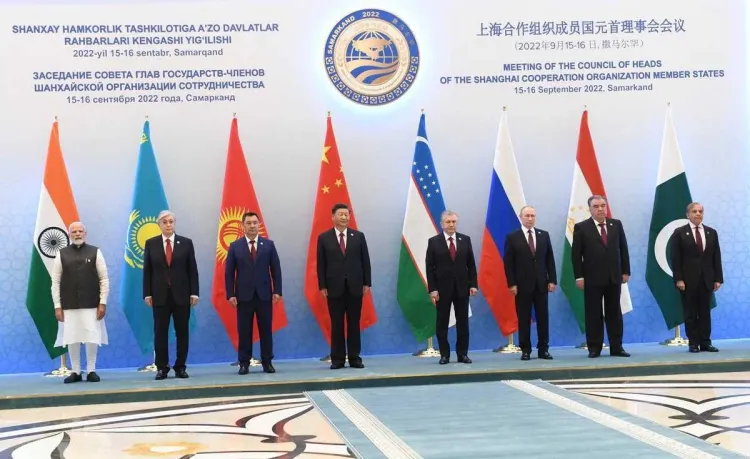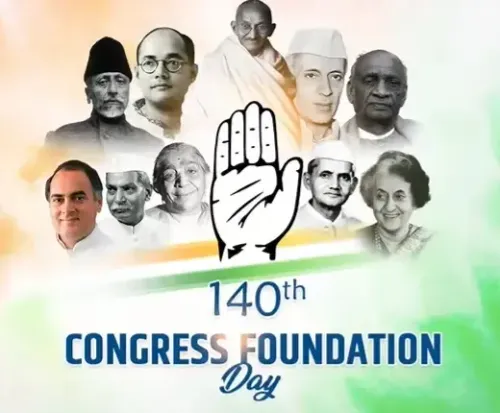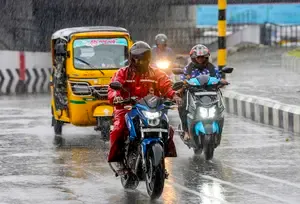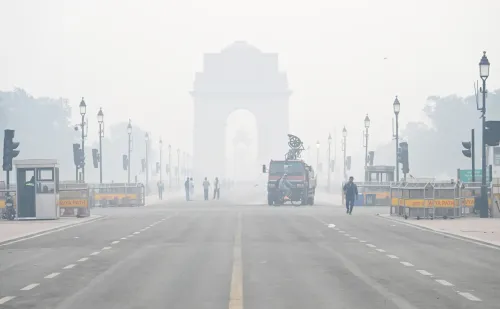How Can Indian Diplomacy Navigate a Multipolar World Order?

Synopsis
Key Takeaways
- India's diplomatic strategy emphasizes flexibility and innovation.
- Active participation in international alliances is crucial.
- Maintaining a non-aligned stance enhances India's global standing.
- Engagement with diverse nations fosters peace and cooperation.
- Domestic governance issues impact international relationships.
New Delhi, Sep 11 (NationPress) The contemporary landscape of geopolitics is characterized by the transition from open warfare to proxy wars, alongside the competitive ascent of China vis-à-vis the US across military, technological, and economic spheres. This context positions India as a significant global power, capable of exercising strategic autonomy in its international relations.
In a world fragmented by ideological and regional alliances, India must undertake effective diplomatic strategies to enhance bilateral ties rooted in mutual security and economic benefits. The presence of forums such as BRICS and SCO, which are largely influenced by the China-Russia coalition, and the Quad, spearheaded by the US to counteract China's expansionist efforts in the Indo-Pacific, exemplifies such alliances. India's active participation in all three showcases its diplomatic acumen in fostering bilateral friendships while adhering to a policy of non-alignment.
This approach has been advantageous for India, bolstering its reputation as a proponent of global peace and humanitarian progress. India perceives this as an era of multipolarity, and a key diplomatic objective should be to avert a regression to the Cold War dynamics.
To navigate international relations effectively, India should adopt a flexible stance, demonstrating strategic patience and prioritizing broader humanitarian interests. Our diplomatic efforts must blend the art of communication with innovative thinking. This intellectual foresight is crucial for shaping future relationships.
Albert Einstein once stated, ‘imagination is more important than knowledge’, underscoring the necessity to envision beyond current realities. Each bilateral relationship is unique, necessitating Indian diplomats to cultivate these ties to reflect their distinctiveness within the global geopolitical context.
Consider the Middle East, where India must forge balanced ties with three major players: Israel, Iran, and Saudi Arabia. These nations have varying alliances, with China and Russia supporting Iran while the US backs Israel, presenting a potential revival of Cold War tensions and a diplomatic challenge for a non-aligned India.
It is gratifying that our foreign policy is directly influenced by Prime Minister Modi, who maintains personal rapport with numerous world leaders and comprehends geopolitical trends. India's diplomatic strength is vital for safeguarding national security and economic interests. Foreign policy inherently derives from national security and economic priorities, with the role of the National Security Advisor becoming increasingly pivotal.
Today's diplomacy is a reflection of the current security landscape, complementing the assessments of national intelligence agencies. National strategy must thus encompass foreign policy, economic interests, and internal security issues. Given the rapid shifts in the geopolitical arena, strategies require frequent adjustments.
Prime Minister Modi’s engagement in the SCO summit in Tianjin, China, alongside bilateral talks with President Xi Jinping and Vladimir Putin, elicited mixed reactions from US President Donald Trump, who perceived India's engagement with the China-Russia bloc as a threat to Indo-US relations. Trump mentioned potential punitive tariffs on India concerning its oil trade with Russia, while asserting that ‘we get along with India very well’. This underscores the need for India to maintain a balanced approach in its relations with both the US and Russia, tailoring diplomatic strategies to accommodate diverse bilateral needs.
India possesses the sovereign right to establish its alliances and adversaries at any given moment, shaping its strategic posture accordingly with an awareness of the global context. The Chief of Defence Staff, Gen Chauhan, has reiterated that the primary threats to Indian national security stem from border disputes with China and Pakistan-sponsored terrorism. The Sino-Pak strategic partnership, primarily aimed at countering India, has become pronounced during military confrontations, particularly following the Pahalgam terrorist attack.
While President Trump condemned ‘Islamic terrorism’, he seemed inclined toward trade agreements with Pakistan, overlooking its role in harboring terrorist entities. Indian diplomacy should educate American policymakers on the implications of the Middle Eastern conflicts, where the Israel-Iran discord is evolving into a potential civilizational clash. Religion-based conflicts threaten democratic stability globally, and efforts to democratize Arab societies could foster peace in the Middle East. The collaboration between India and the US, the world’s two largest democracies, is essential for promoting global peace.
Prime Minister Modi’s focus on achieving self-reliance through the ‘Make in India’ initiative, coupled with a commitment to bilateral relations without aligning with any global power, and advocating for peaceful resolutions to contemporary military conflicts—including the Ukraine-Russia conflict, the Iran-Israel confrontation, and the situation in Gaza—constitutes a strategic framework that serves India well. India must vigorously counter the Sino-Pak axis, differentiate its interactions with China and Russia, and navigate its relations with the US and Russia without favoring one side, particularly in light of the rapport between Trump and Putin. Furthermore, India should focus on enhancing its standing in the South and actively pursue the ‘Act East’ policy.
In a multipolar world, such strategies will amplify India’s stature as a global power. Domestically, governance issues remain crucial in India’s diverse democracy, impacting its international image. A robust central government is necessary to uphold federal values, as internal security is primarily the central government’s responsibility, requiring cooperation from states irrespective of political affiliations. This directive should be clearly articulated by the central authority.
The concept of ‘Nation First’ has resonated with the Indian populace long before Trump’s ‘America First’ campaign. Prime Minister Modi affirmed on his inaugural visit to the White House that India comprehended this ethos and had no reason for concern. Such an understanding is fitting for a nation of India’s magnitude and influence. It is encouraging to observe the Modi administration’s management of relationships with various countries, evaluating them based on how they advance our national security and economic priorities.
(The writer is a former Director of the Intelligence Bureau)










